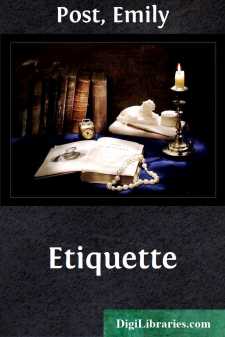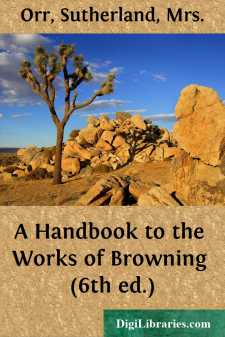Reference
- Atlases 1
- Bibliographies & Indexes 10
- Catalogs 55
- Dictionaries 1
- Encyclopedias 43
- Etiquette 14
- Handbooks & Manuals 19
- Heraldry 2
- Quotations 9
Reference Books
Sort by:
by:
Various
DODWELL, EDWARD (1767-1832), English traveller and writer on archaeology. He belonged to the same family as Henry Dodwell the theologian, and was educated at Trinity College, Cambridge. He travelled from 1801 to 1806 in Greece, and spent the rest of his life for the most part in Italy, at Naples and Rome. He died at Rome on the 13th of May 1832, from the effects of an illness contracted in 1830 during...
more...
by:
Various
EDWARDES, SIR HERBERT BENJAMIN (1819-1868), English soldier-statesman in India, was born at Frodesley in Shropshire on the 12th of November 1819. His father was Benjamin Edwardes, rector of Frodesley, and his grandfather Sir John Edwardes, baronet, eighth holder of a title conferred on one of his ancestors by Charles I. in 1644. He was educated at a private school and at King’s College, London....
more...
by:
Various
Geographical usage confines to the southern part of the island of Great Britain the name commonly given to the great insular power of western Europe. In this restricted sense the present article deals with England, the predominant partner in the United Kingdom of Great Britain and Ireland, both as containing the seat of government and in respect of extent, population and wealth. 1. Topography. England...
more...
by:
Various
Medieval Drama While the scattered and persecuted strollers thus kept alive something of the popularity, if not of the loftier traditions, of their art, neither, on the other hand, was there an utter absence of written compositions to bridge the Ecclesiastical and monastic literary drama. gap between ancient and modern dramatic literature. In the midst of the condemnation with which the Christian...
more...
by:
Emily Post
INTRODUCTION MANNERS AND MORALS Richard Duffy Many who scoff at a book of etiquette would be shocked to hear the least expression of levity touching the Ten Commandments. But the Commandments do not always prevent such virtuous scoffers from dealings with their neighbor of which no gentleman could be capable and retain his claim to the title. Though it may require ingenuity to reconcile their actions...
more...
by:
Agnes H. Morton
INTRODUCTION As a rule, books of etiquette are written from the standpoint of the ultra-fashionable circle. They give large space to the details of behavior on occasions of extreme conventionality, and describe minutely the conduct proper on state occasions. But the majority in every town and village are people of moderate means and quiet habits of living, to whom the extreme formalities of the world...
more...
GENERAL INSTRUCTIONS. 1. You are required personally to superintend the performance of the routine work of your office and see that it is properly done. 2. This routine work should be suitably and fairly apportioned amongst your clerks—each clerk (under your superintendence) being responsible for the duty assigned to him. You will, after fair warning, report to the Postmaster General any clerk...
more...
by:
Sutherland Orr
I. INTRODUCTORY GROUP. "PAULINE," "PARACELSUS," "SORDELLO." These three poems are Mr. Browning's first, and they are also, as I have said, the one partial exception to the unity and continuousness of his work; they have, at least, one common characteristic which detaches them from the remainder of it. Each is in its different way the study of a human spirit, too ambitious...
more...
by:
Various
HANDY DICTIONARY OF POETICAL A. Abashed. Abash'd the devil stood,And felt how awful goodness is, and sawVirtue in her shape how lovely.1MILTON:Par. Lost,Bk. iv., Line 846. Abbots. To happy convents bosom'd deep in vines,Where slumber abbots purple as their wines. POPE:Dunciad,Bk. iv., Line 301. Abdication. I give this heavy weight from off my head,And this unwieldy sceptre from my hand,The...
more...
Where is any author in the world Teaches such beauty as a woman's eye? Love's Labour's Lost, A. 4, S. 3. The idea of her life shall sweetly creep Into his study of imagination; And every lovely organ of her life Shall come apparel'd in more precious habit, More moving-delicate, and full of life, Into the eye and prospect of his soul. Much Ado About Nothing, A. 4, S. 1. Kindness in...
more...











